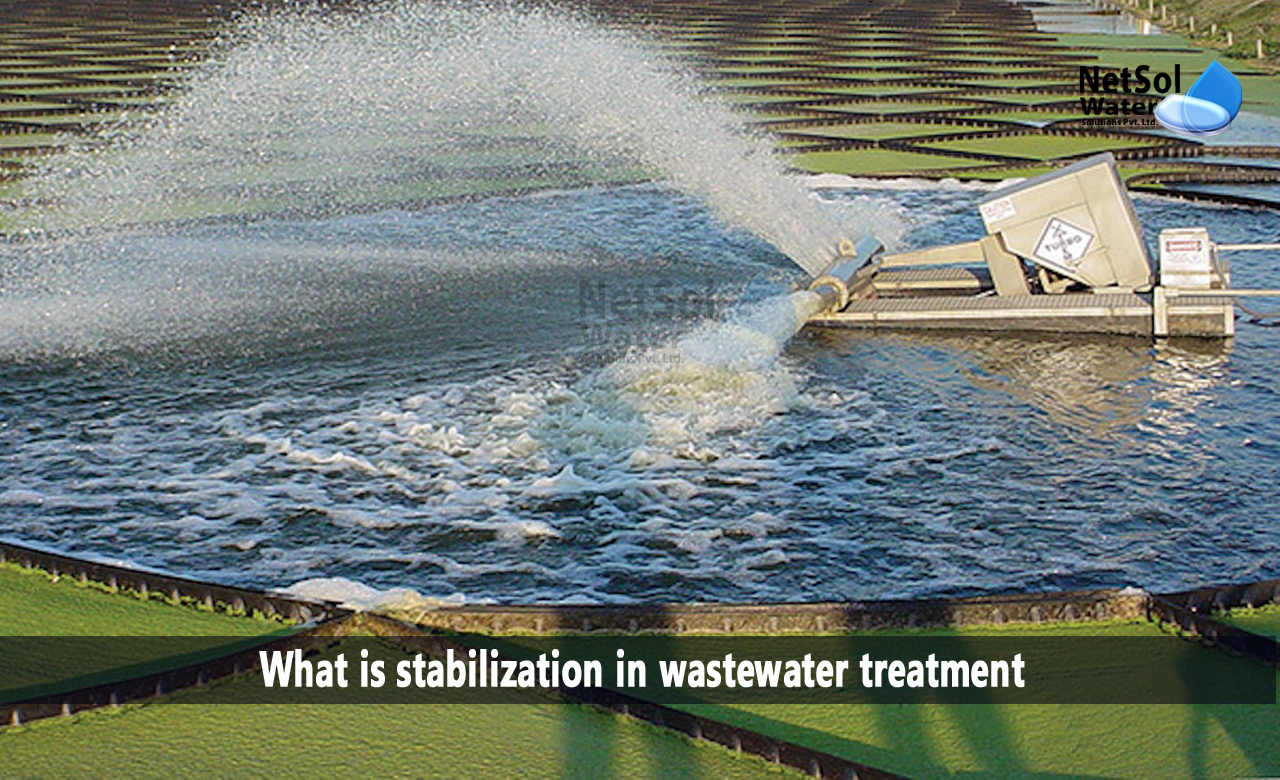Two options are available for further treating the concentrated sludge, once the sludge has thickened. It can either go through stabilization operations to lessen the organic elements in the sludge before moving, on to the dewatering step, or it can be dewatered to a solid content of between 30 and 40%.
To provide an environmentally responsible and legal conclusion, coarse primary solids, and secondary sludge (sometimes referred to as biosolids), must be treated before disposal.
What is stabilization in wastewater treatment?
A chemical or biological procedure known as stabilization halts the sludge's natural fermentation. Lime is almost always used for chemical stabilization.
Objective of stabilization in wastewater treatment
As it relates to the sludges from numerous food-processing wastewaters, sludge stabilization has several goals, including the reduction of pathogens, the elimination of odour, and the reduction of organic matter, preventing or inhibiting future decomposition.
Sludges are stabilized to stop anaerobic breakdown that occurs naturally, during and causes an unpleasant odour. Sludge can be stabilized chemically or biologically, albeit the latter method is more popular and efficient.
Chemical Stabilization
When enough lime is applied to the sludge to change the pH value to a high level (>11), no microorganisms can survive. This is known as lime stabilization.
After sludge dewatering, a comparable lime treatment can be used to achieve the same chemical stability goal. Since, the lime treatment does not destroy or change any organic material, it is frequently necessary to apply too much lime to maintain a high pH level, in order to prevent further decomposition of organic materials in the sludge.
Biological Stabilization
In biological stabilization, which is frequently referred to as "digesting," organic content in the sludge is reduced using biological and frequently microbiological agents. There are numerous digesting methods, all of which aim to lessen not just the amount of organic matter contained in the solids, but also the quantity of disease-causing microbes.
Anaerobic digestion, aerobic digestion, vermi-stabilization, and composting are the most popular forms of treatment.
Anaerobic Digestion: Common Method for Sludge Stabilization Process
Without stabilization, the sludge will naturally decompose and most likely anaerobically; however, the biogas (a mixture of 55-75% CH4 and other gases, primarily CO2) would escape into the atmosphere, and CH4 is a more potent greenhouse gas than CO2. In this sense, biogas is regarded as a renewable fuel if used, and anaerobic digestion is regarded as a sustainable technology.
The management of animal waste and the treatment of sewage, are two popular uses for anaerobic digesters, which have been around for a while. The amount of organic material that would otherwise, wind up in landfills or garbage incinerators, can be significantly decreased with this relatively easy process.
Sludge aerobic digestion
While, anaerobic digestion is better at treating primary sludge, aerobic digestion is used to treat secondary sludge from biological wastewater treatment processes, like activated sludge and trickling filters.
The primary insoluble solids in secondary sludge include microbial biomass. Degrading insoluble materials in an aerobic atmosphere is the goal of aerobic digestion. Both mechanical and bubbling aerators mix oxygen into the tank's contents. The oxygen supply can be improved to considerably speed up the process.
A typical aerobic digester feeds raw secondary sludge into the tank constantly, with supernatant and sludge withdrawals interspersed. During and immediately after the tank's filling, the aerobic digester is continually aerated. The solids are then given time to settle naturally after aeration has ceased. The sludge that has settled due to gravity is removed and the supernatant is decanted.
What do we have to offer?
Stabilization ponds in wastewater treatment may be the greatest option for your company. The first step is to determine how much water you need and how good your water is.
To assist you with this process, Netsol Water provide a wide range of water and wastewater treatment plants. For further information or to make a purchase, please contact us at +91-9650608473 or enquiry@netsolwater.com



